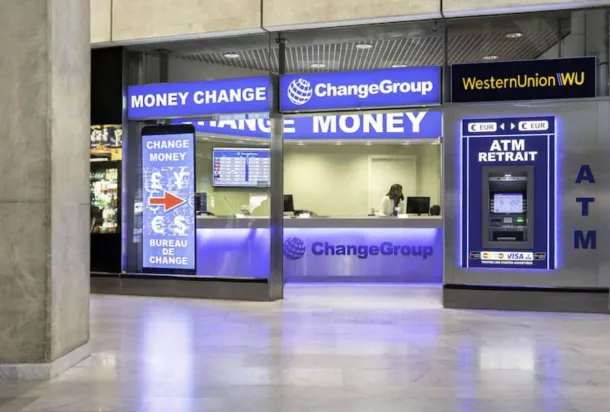What Are The Major Differences Between Local Rates And Online Prices?
It is essential for travellers, investors, and businesspeople to understand the distinctions in exchange rates for currency between online and physical currency exchange outlets. Local rates are rates offered by currency exchange outlets or banks in the area you live in or where you are going. Online rates are provided by digital platforms or financial institutions as well as other currency converters. They can be wildly different, impacting the amount you pay to convert currency and the amount you will earn from your investment. Knowing the difference between rates for local and online can help you make more informed decisions that will help you save money. The top ten tips to navigate local and online rates efficiently are listed below.
1. Find out about the various rates
Local exchange rates can differ significantly from rates offered online. It is because of factors, like overhead costs, market conditions and demand. Local exchange providers may charge higher fees and less favorable rates due to operational costs, while online platforms usually offer higher rates due to lower expenses. You can choose the best exchange provider by familiarizing yourself with all these distinctions.
2. Compare Rates before Making the decision to exchange currency.
Compare the rates of both online and local before exchanging currency. You can compare rates of currency in real time by making use of reliable websites and converter tools. If, for instance, you are traveling to another country, search for the exchange rate on the internet and compare it with what local currency exchange booths or banks provide. This will assist you to save money and determine the most effective alternative.
3. Utilize Online Currency Exchange Platforms
– Online currency exchange platforms like Wise (formerly TransferWise) and Revolut generally offer better attractive rates and lower costs in comparison to local banks as well as exchange kiosks. These platforms provide transparent fees and real-time rates. With these platforms you can be assured that you're getting the best possible deal in converting currencies.
4. Be aware of Dynamic Currency Conversion.
It is possible that you can pay for purchases in local currency using Dynamic Exchange Rate Conversion. Although it is convenient, this option often has unfavorable rate of exchanges and extra charges. Pay in the local currency to avoid the high fees charged by DCC and enjoy more favorable rates.
5. Compare Cost and Convenience Cost
When deciding on local or online rates, consider balancing the convenience with the costs. Local exchanges can access funds immediately, which could prove useful for travelers. Exchanges online are usually more affordable, but can require you to establish an account. To determine the best option for you, consider your needs according to your travel plans or business goals.
6. Monitor Trends in Exchange Rates
The trend of exchange rates will help you make more informed decisions when it comes to converting your currency. The internet is often a source of historic data and analysis tools that allow you to track fluctuations in exchange rates. Knowing the market can help you to plan your currency exchanges better so that you can benefit from the best rates.
7. Calculate ATM charges and withdrawal limits in your locality
Be aware of the fees that come when you withdraw cash from ATMs in your area. Different banks charge different charges when you make international transactions. ATMs often also have restrictions on withdrawals. There are ATMs that offer reduced rates or fees by researching ATMs in your area prior to your travels. This will ensure you get the best value on your withdrawals.
8. No-Fee Currency Exchange Services
Some platforms on the internet offer free exchange of currency, especially for those who have accounts. This is particularly beneficial for business and individuals who have to deal with foreign currencies frequently. The opening of an account allows you to benefit from lower rates and better service, which will help maximize your cost savings.
9. Talk to Financial Experts for Large Transactions
It is important to seek out advice from financial professionals if you have significant amounts of cash or are involved in complicated currency exchanges. Currency specialists can provide insights on the best ways to managing local and online rates effectively. This is especially important for companies that engage in international trade, or investors who want to get the most exposure from their currency.
10. Plan Ahead for Currency Needs
Planning ahead can help you save time and money whether traveling for business or on vacation. Consider how much cash is needed to travel and the most efficient method to exchange the money. If you find that rates in your area are not favorable, consider making use of online platforms to exchange your currency before your trip, ensuring you have access to higher rates and reducing the chance of losing money through unfavorable exchanges.
Make better choices on currency exchange by following these detailed guidelines. This is the case whether you are on vacation performing business or managing investments. Understanding the pros and cons of both will help you to make decisions about your finances that are in line with your goals and save you money. Have a look at the most popular rate for website tips including usd to aud, dollar to inr, yen to dollar, convert pounds to dollars, 1 us dollar in indian rupees, 1 us dollar in indian rupees, usd to indian rupees, indian rupees to usd, us dollar to pakistani rupee, colombian peso to usd and more.

Ten Tips For A Better Payment Method In The Area Of Exchange Rates As Well As Currencies
In today's world-wide economy, it is important to choose the best method of payment in order to efficiently manage your financial transactions, whether travelling abroad, managing your business, or managing investments. Payment method selection can have an impact on the cost as well as security, convenience, and ease of use. There are a variety of payment options that come with various costs, exchange rates and acceptance levels that can affect your overall experience and the financial results. Understanding the nuances and differences of payment methods will help you make decisions that are in line with your objectives. Here are the top 10 detailed tips on how to choose and utilize payment methods in your financial ventures.
1. Understand the Types of Payment Methods that are available
Learn about the different types of payment options available, such as credit/debit cards, cash mobile payments, and digital wallets. Each option has both advantages and disadvantages with regards to convenience, cost, or acceptance. Cash, for instance is widely accepted however it can be a hassle and less secure if used to make large purchases. Knowing the pros and cons of each method will allow you to choose the best option for your particular situation.
2. Consider Currency Conversion Charges
Be aware that currency conversion costs may be charged when you use a credit card or debit card for international transactions. Credit card companies and banks may charge different fees. Some cards charge fees for international transactions, while others do. Before you go on a trip or purchase in another country, ask your bank about the currency conversion fee policies. Select the card that will minimize these costs.
3. Credit cards are accepted without paying foreign transaction fees
If you plan to travel abroad, or buy items using foreign currencies, you should choose a card that doesn't charge transaction costs. The majority of travel-oriented cards offer this advantage. You can utilize your credit card abroad at no additional cost. This could make a huge difference in dollars, particularly if you are frequent travelers or have a large amount of purchases to make in markets outside of your home country.
4. Mobile Options
Mobile payment methods like Apple Pay, Google Pay or other digital wallets, are a easy and secure option to pay for transactions without cash or credit cards. These services have enhanced security features like tokenization and authentication biometrics which makes it a secure option for both in-person and online transactions. To make your purchases more efficient you can make use of mobile payments to make smaller purchases.
5. Pay attention to ATM fees when withdrawing cash
– Take note that ATM fees can vary greatly. Some banks charge fees to withdraw money abroad, while others work with local banks to allow free withdrawals. You can save money by researching ATM networks that charge lower costs. Additionally, consider withdrawing larger amounts at once to minimize the number of transactions as well as the fees associated with them.
6. Plan for Backup Payment Methods
If your primary method of payment doesn't work or is lost having a backup plan is crucial. It is possible to purchase purchases with a second credit or debit card. While traveling, this backup becomes more essential as certain places do not accept all types of credit card. Avoid unexpected events by preparing ahead.
7. Monitor Exchange Rates to Make Better Decisions
If you are buying in foreign currencies it is important to keep an eye out on the rates of exchange so that you can make informed decisions about when to convert or use payment methods. Tools and apps that monitor exchange rates in real time will allow you to determine the most favorable conditions for currency converters. This may affect the method of payment you select particularly when fees are connected with exchange rates.
8. Be aware of security features
When selecting payment options, the security of your transactions should be top of mind. Examine the security features provided by your credit card, bank provider, or payment processor. Look into options that provide security against fraud, alerts on transactions, as well as encryption technology. Choosing secure payment methods will protect you from potential fraud and unauthorised transactions, particularly when making purchases on the internet or in foreign countries.
Review Payment Policy Guidelines in the Business
Knowing the policies for payment of your business is essential for managing cash flows and transactions with customers. It is important to compare various payment processors according to their acceptance rates, charges and features. You should choose the payment method that is in line with your business objectives, whether it's low transaction fees, quick processing times or customer convenience. The right choice of payment method can improve the customer's experience and speed up the operations.
10. Learn more about the different ways to pay for investments.
Knowing the various payment options to purchase and sell assets is crucial for investors. Different brokerage platforms could offer various payment options for funding accounts or executing trades. Find out about the fees and processing time associated with each of these methods. You may also want to consider how margins or leverage could affect the overall strategy.
Use these guidelines to make sense of the complexity of travel, business and investment with greater efficiency. Knowing the various options along with the associated fees and security features can help you make better financial decisions. The right method of payment will ultimately improve your overall financial experience and provide you with security and peace of mind, as well as aid in saving money. Take a look at the best additional resources on CZK to EUR for more advice including rs to usd, convert euro to usd, convert euro to usd, usd to inr, us dollar in indian rupees, jpy usd, usd to cop, usd mxn, euro usd, usd to indian rupees and more.

